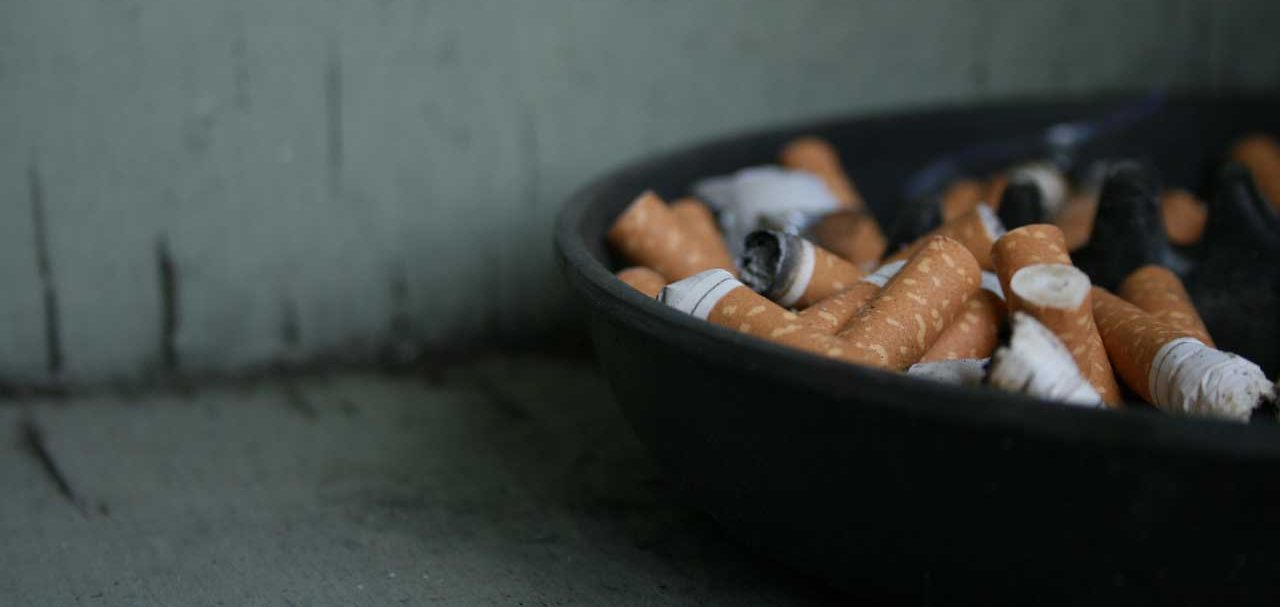The Effects of Secondhand Smoke Linger in Your Car and Home

It might seem okay to smoke in your house or car when your family and pets aren’t around. But a compound left behind could harm them through their skin.
Secondhand smoke kills.
In fact, around the world, breathing in other people’s cigarette smoke kills 600,000 people every year, according to estimates from the World Health Organization. Scientists have learned more about why that might be and why it’s possible you don’t have to breathe the smoke to be hurt.
When people smoke cigarettes, an organic compound called acrolein enters the air, both while they’re inhaling and when they exhale. "Anyone who has ever sat in a smoky pub has breathed it in," says lead investigator Erika Jensen-Jarolim from MedUni Vienna's Institute of Pathophysiology and Allergy Research. To examine the effects of secondhand smoke, her research team exposed mice to acrolein through the nasal passages at about the rate it reaches humans and tracked the immune response in T cells. That research suggests that acrolein dampens human immune response, allowing cancers to grow faster.
YOU MIGHT ALSO LIKE: Is Vaping Bad for You?
Acrolein isn’t just in cigarette smoke, although cigarettes are the major source for people today. We breathe in acrolein from automobile exhaust and in the air near an oil or coal power plant. The unpleasant smell of burnt fat — you’ve smelled it when cooking oil is overheated in a pan and burns — is the product of glycerol in the fat breaking down into acrolein. Fried foods and roasted coffee actually contain small amounts of acrolein. When you snuff out a standard paraffin wax candle, you’re smelling acrolein in the air.
Although you might think it’s okay to smoke in your house or car when your family or pets aren’t present, there’s reason to think that the smoke could affect them later. Acrolein hasn’t gone away when we no longer smell it, Jensen-Jarolim reports, but lingers and can stick to all kinds of things — dinner plates, clothing, or curtains. She warns that people can come into contact with it through their skin even when they’re not inhaling fumes.
To avoid acrolein in candle smoke, stay away from paraffin and choose candles made of beeswax, soy, bayberry, carnauba, candelilla, and palm wax. Also avoid fragrances.
Protecting your children from the effects of secondhand smoke is especially important if they’re allergic. Inhaling other people’s cigarette fumes — known as passive smoking — has been tied to a greater risk of allergic skin reactions and nasal congestion, as well as ear infections, bronchitis, asthma attacks, and sudden infant death syndrome.
Jensen-Jarolim’s team, however, found that acrolein suppresses the immune response in a way that may make smokers less susceptible to allergies. Other research backs up the idea that smokers may be less allergic.
Of course, that not a reason to smoke! Cigarette smoking is the leading cause of premature, preventable death in the United States, strongly linked to not only lung cancer but also a long list of cancers, as well as heart disease, stroke, and other lung disease.
Quitting can reverse the bad effects. Along the way, switching to e-cigarettes — also known as vaping — will go a long way to reduce your exposure to toxins. It’s unclear what risks that vapor poses to people nearby. It’s less dangerous than smoke, but you’re still poisoning the air around you.
YOU MIGHT ALSO LIKE: You CAN Quit Smoking: Here Are Tips to Succeed
Updated:
April 01, 2020
Reviewed By:
Janet O’Dell, RN